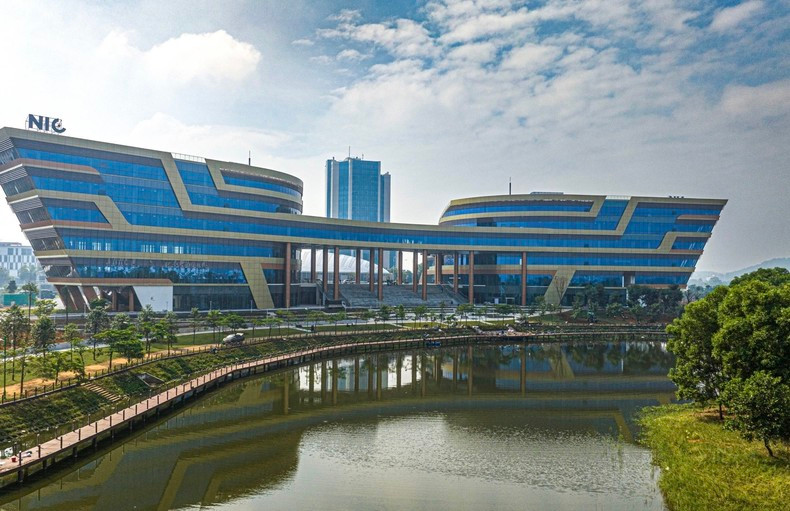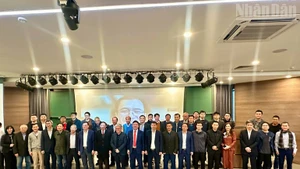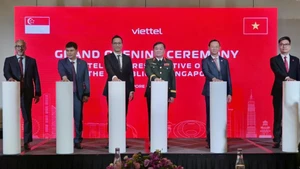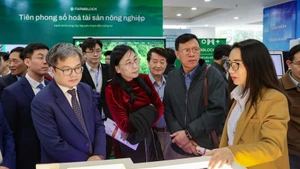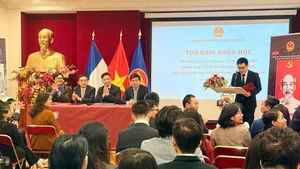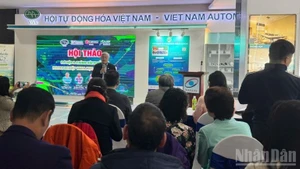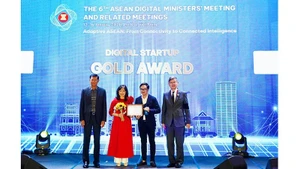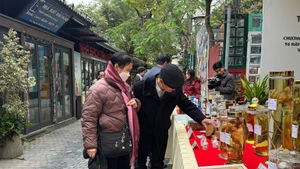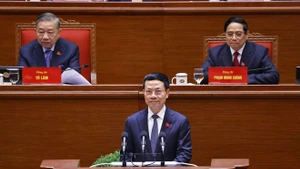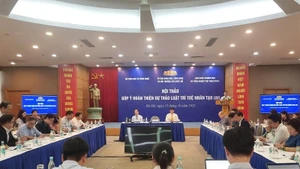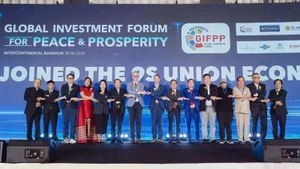1. The Party Central Committee’s issuance of a new resolution on the development of Vietnam’s contingent of intellectuals.
Resolution No.27-NQ/TW was issued during the eighth session of the 13th Party Central Committee, setting targets of developing a contingent of intellectuals in both quantity and quality by 2030, especially leading experts and scientists in key and new areas to meet the country’s modernisation and industrialisation. In 2045, the contingent is expected to be strong with high quality, reasonable structure, entering the leading group in the region and getting close to those in developed countries.
2. The management authority of the Hoa Lac Hi-Tech Park is officially handed over from the Ministry of Science and Technology to the People’s Committee of Hanoi.
The park, which was set up in 1998, has drawn 111 projects, including 15 foreign-invested ones, with a combined capital of over 111.5 trillion VND (4.59 billion USD).
3. The Information Technology Institute under the Vietnam Academy of Science and Technology successfully develops a Vietnamese-centric translation system that translates from Vietnamese to low-resource languages in the Southeast Asian region, including Lao, Khmer, Thai, Malaysian, and Indonesian, and vice versa.
The system has similar quality as reputable commercial products of the same kind in the world.
4. Scientists from the Institute of Imperial Citadel Studies under the Vietnam Academy of Social Sciences successful restores in 3D the architectural form of Kinh Thien Palace in the Early Le Dynasty.
Kinh Thien Palace was the most important in the Thang Long Imperial Citadel during the Early Le Dynasty. Its construction began in 1428 during the reign of Emperor Le Thai To who reigned from 1428-1433 and was completed during the reign of Emperor Le Thanh Tong who reigned from 1460-1497.
5. The mastering of the technology of solar thermal reflective paint using domestically produced nanomaterials.
The Institute of Tropical Technology under the Vietnam Academy of Science and Technology has completely mastered the technology of manufacturing solar heat reflective additives based on nano-sized materials and applied them in making highly effective solar heat reflective paint, which is being used in civil and defence works such as house roofs, petroleum tanks and fishing vessels.
6. The successful performance of the first heart and kidney transplant turns Vietnam into a bright spot in organ transplant in Asia.
On February 2, doctors of Viet Duc Hospital in Hanoi successfully perform a heart-kidney transplant on a patient using organs from a brain-dead donor, the first of its kind in Vietnam. Earlier, Vietnamese doctors successfully conducted three multi-organ transplant surgeries.
7. The development of an alum and saline water treatment system.
The technology was jointly researched by the Vietnam-Korea Institute of Science and Technology (VKIST) and the Korea Institute of Science and Technology (KIST) from 2021. Through many tests in many different saline and alum contaminated areas in the Mekong Delta, in September 2023, the VKIST optimised and perfected the technology to treat alum and saline water. The system treats alum water and brackish water into clean water, meeting drinking water standards according to the Ministry of Health's Regulations QCVN 01-2009/BYT, with a capacity of 12 cubic meters per day.
8. Viettel successfully deploys the world's first 5G transceiver station meeting Open RAN standards.
In November, the Viettel High Tech under the Viettel Group announced the successful deployment and validation of the 5G Open RAN gNodeB, co-developed with Qualcomm.
This is a major breakthrough not only in Vietnam but also the world. It took Viettel only eight months to research, develop and complete the work since Viettel and Qualcomm announced their strategic cooperation in February 2023. This result has contributed to promoting the process of commercialising 5G networks in Vietnam and the international market using domestically produced 5G equipment by 2024.
9. Five Vietnamese scientists are named among world top rising stars of science in 2023.
Research.com, a reputable website for world scientists, announced its top rising stars of science ranking in 2023, including seven scientists working in Vietnam. Of them, five are Vietnamese.
10. The National Innovation Centre (NIC) strengthens international cooperation in semiconductor industry.
On December 28, the NIC under the Ministry of Planning and Investment launched its new headquarters in Hanoi’s Hoa Lac Hi-Tech Park. Currently, the centre is working with domestic and international partners to train and enhance the quality of human resources for Vietnam’s semiconductor industry, focusing on organising intensive courses on microchip design.
